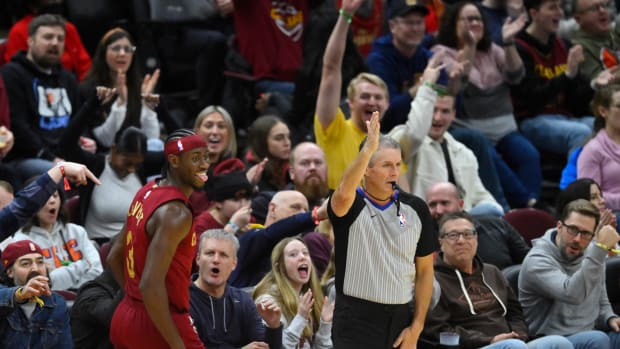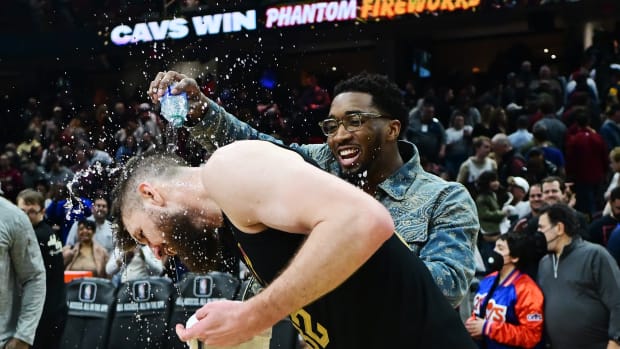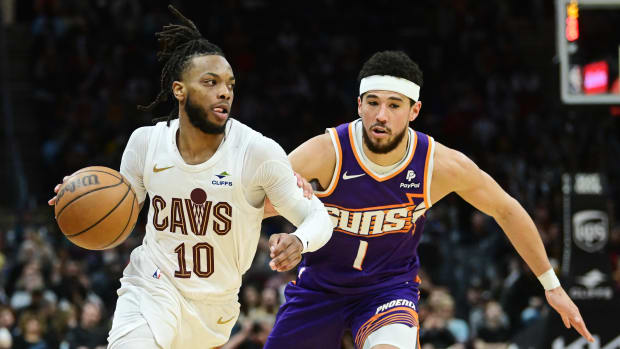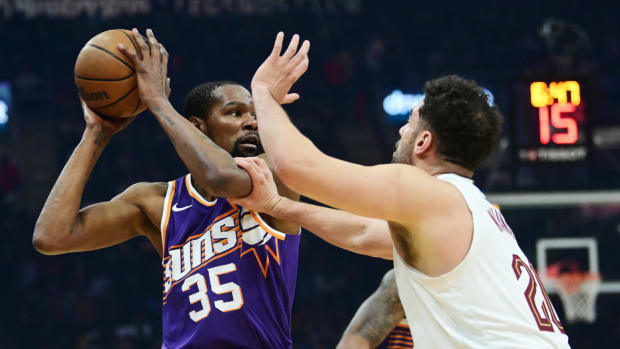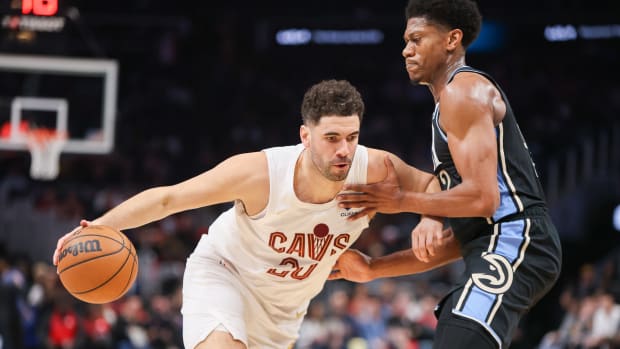Belden: Bulls facing tough summer questions
Watching last season's version of the Chicago Bulls, it was abundantly clear the pieces assembled last offseason simply did not fit together.
This lack of cohesion has lead the Bulls brass to have to make difficult decisions about the future of the franchise. The Bulls, unfortunately, have reached a place teams try to avoid: The middle of the road. To truly rise to contention, the Bulls are going to need some significant help. As they are currently constructed, the Bulls are limited in the ways the can acquire that help.
Because of multiple big-money contract of players like Dwyane Wade (the Bulls owe him $23.8 million next year if he picks up his player option), Jimmy Butler ($18.7 million), Robin Lopez ($13.8 million), and Rajon Rondo ($13.4 million next season if the team picks up his option), there is a lack of wiggle room in the budget to make any major additions via the free agent market.
Any type of rebuild in the short term will have to start in the trade market, a place where the Bulls lack assets outside of All-Star G/F Jimmy Butler. But would trading Butler truly be better for the Bulls long-term?
The case for keeping Butler
Butler, who will be 28 before the beginning of next season, statistically is coming off his best season. Butler set career highs in scoring (23.9 points per game), rebounds (6.5 total per game), assists (5.5 per game), and three-point percentage (37.6%). His development likely has Bulls fans salivating about his start potential.
Financially, Butler is under contract with the Bulls through the 2018-2019 season, after which he has a player option for 2019-2020. Butler will likely decline that option and become an unrestricted free agent.
What happens then has a lot to do with how Butler plays next season. If Butler repeats his success and qualifies for any of the All-NBA teams, he would qualify for the veteran designated player exception. At that time, the Bulls would be able to offer Butler a maximum contract of $246 million over the course of five seasons. The best another team could offer Butler would be $155 million over the course of four seasons.
Butler will be 30 at the time, and given the shelf-life of NBA players, he likely will be looking at the final major payday of his NBA career. For Butler, walking away from $91 million of guaranteed money would seem nearly impossible, especially since he will be nearly 35 at the time.
With the idea in mind that the Bulls can keep Butler for the duration of his career, keeping him as a franchise centerpiece could make a lot of sense.
It seems as if Butler is more than ready to lead a team, if the right pieces are put around him. When looking at Butler's numbers compared to other NBA stars, he stacks up very well. Somewhat surprisingly, Butler's numbers from this past season look nearly identical to James Harden's numbers from the season before.
| <p>Player</p> | <p>FG</p> | <p>FGA</p> | <p>FG%</p> | <p>3P</p> | <p>3PA</p> | <p>3P%</p> | <p>2P</p> | <p>2PA</p> | <p>2P%</p> | <p>FT</p> | <p>FTA</p> | <p>FT%</p> | <p>REB</p> | <p>AST</p> | <p>STL</p> | <p>PTS</p> |
|---|---|---|---|---|---|---|---|---|---|---|---|---|---|---|---|---|
7.5 | 16.5 | .455 | 1.2 | 3.3 | .367 | 6.3 | 13.2 | .477 | 7.7 | 8.9 | .865 | 6.2 | 5.5 | 1.9 | 23.9 | |
8.7 | 19.7 | .439 | 2.9 | 8.0 | .359 | 5.8 | 11.7 | .494 | 8.8 | 10.2 | .860 | 6.1 | 7.5 | 1.7 | 29.0 |
The case for moving Butler
Butler is reaching his prime, but is unfortunately not playing with teammates who seem to maximize his capabilities. If Butler is still a Bull at the beginning of the season, it will likely be another year before the Bulls are able to move on from Wade's contract. Wade likely will not be able to garner the same type of money on the free agent market, but if Butler is moved and the Bulls opt for a complete re-build, it may inspire Wade to opt out to got elsewhere.
In addition, Butler is just one player who is reaching the peak of his prime. Handcuffed by bad contracts, the Bulls run the risk of wasting his prime and depleting their highest-quality asset. There is a real possibility that by keeping him, the Bulls find themselves in a similar situation in 2020, with the major difference being that they broke the bank to keep Butler in Chicago.
Dealing Butler in the present would likely net the Bulls multiple young players with more team-friendly contracts and perhaps a top draft pick, in addition.
Teams such as the Celtics and Lakers (the holders of the first two selections in this year's NBA Draft) may be interested in Butler's services. A possible Butler-to-Boston scenario could play out late in the summer, especially if the Celtics strike out with Gordon Hayward in free agency and Paul George on the trade market. In a similar fashion to how the Timberwolves were able to acquire Andrew Wiggins from the Cavaliers in exchange for Kevin Love, the Bulls could land the Celtics' top pick in exchange for Butler.
Overall outlook
The bottom line for the Bulls is that either choice is a gamble. Keeping Butler prevents the frustration of a complete rebuild, but there is a major risk that the inability to pair other good players with Butler keeps the franchise in a holding pattern. Moving Butler means the Bulls will run the risk of hoping that young, unproven players turn in to a franchise centerpiece.
Though the prospect of a complete tear-down and re-build is a tough pill to swallow, just that may be what is the best--and quickest--next step for the Bulls' future success.
